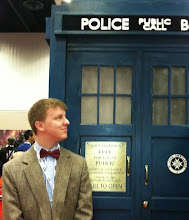His guest was the brilliant Stephen Fry and aside from the crew, they were the only ones in the studio. There was no traditional monologue, but only an introduction to this experiment. He said people like Larry King and Charlie Rose are able to do this and he wanted to try it. What follows was simply a free form conversation covering a variety of topics from Twitter to America. Fry is always entertaining because he is wise and articulate while still being funny. So is Ferguson actually. He plays the buffoon card a lot, but he is also a very intelligent individual.
Now this is where the episode intrigued me. All performers and writers are conscious of their audience. I know others will read this article so I am trying to convey my thoughts in a manner that they will understand. It’s more than being considerate; it’s being responsible. On a typical episode, Ferguson is constantly interacting with the audience. He plays off the jokes that are working and always wants to make them laugh. This isn’t just for him, but for them. The audience arrives each night to see him.
On the episode with Fry, he wasn’t the usual performer. He wasn’t playing the manic kooky host. He was calm and very interested in what Fry was saying. There were still jokes in the conversation because the two of them are naturally funny people. They were there to entertain each other and themselves. If the audience is there to see Ferguson, isn’t this the Ferguson they would want to see? This purer and more honest Ferguson?
It is silly to suggest that Ferguson the Performer and Ferguson the Man are two different people. Both of these personas still have the audience of him. The show he has is the show he wants. This is how he wants to do the monologue—what appears to be entirely improvised. This is how he wants to perform the interviews—without pre-scheduled questions designed by publicists. There is honesty in his program.
All writing has an element of truth in it because we write to satisfy ourselves first. That night we saw something that he really wanted to do. As with most experiments, it had the chance to backfire and bomb. Instead it was a great moment of television.


No comments:
Post a Comment